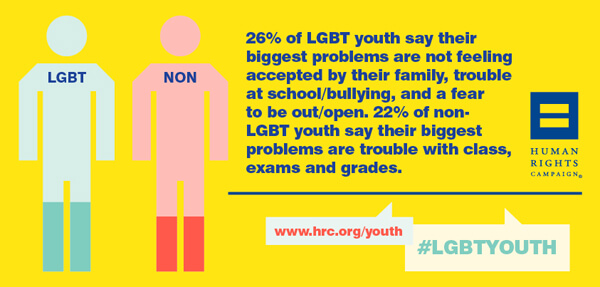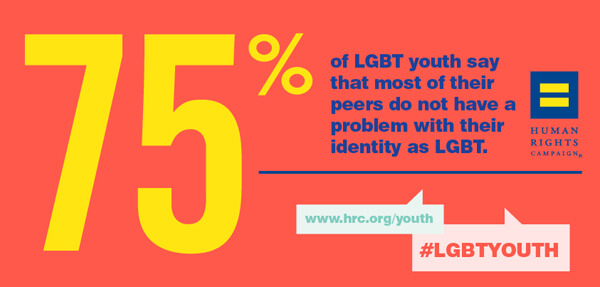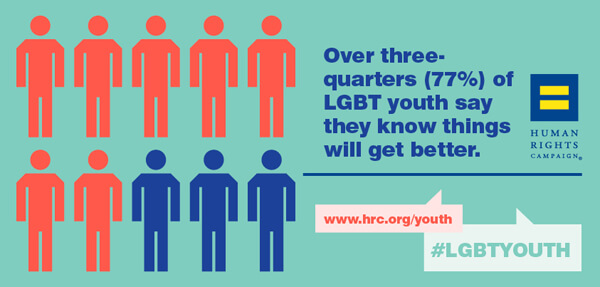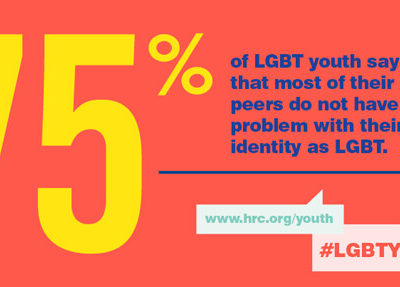The Human Rights Campaign found that 26 percent of LGBT youth (ages 13-17) say that their biggest issues are not feeling accepted by family, bullying at school and a fear of being out. It’s no wonder why some students are afraid to come out. But for those who are ready to reveal their true selves for National Coming Out Day on October 11 2015, know that you are not alone.

In fact, I was in your shoes a few years ago. Whether you are coming out to your family or friends, wait until you feel comfortable, and be careful in the process. I wouldn’t suggest coming out like I did. I rashly told my mother in the middle of an argument. She didn’t understand what being bisexual meant; she thought I was just gay. The frustration and lack of understanding from her led me to question myself and who I was as a person. I wanted her to make me feel as if I belonged and she didn’t, so I went to someone who would. I told my best friend at the time that I was bisexual and she hugged me and told me that I was born this way and to not let anyone make me feel like I wasn’t. I felt like I came out to the right person because she made me feel accepted. It’s hard to know if my mom’s confusion stemmed from the way I came out and for that I wish I could go back and change my approach. But like others, I must wear my coming out story like a proud badge.
My own story was a reflection of who I was, grasping at anything to identify myself as and rushing myself to be that. I found my sexual orientation at a young age and I have lived my life that way. I believed myself to be bisexual, but since coming out and learning from others I now identify as pansexual. Pansexuality is defined as “not limited in sexual choice with regard to biological sex, gender, or gender identity.” To me it means not having to look at someone for what they are, but for who they are. Connecting with someone on a personal level and learning about them is where I find my attraction.

With so many places to fall on the spectrum, every situation is different. Every time I meet someone new I have to come out again, and it is always a changing structure. “There’s no one right way. Do it in the way that works for you. There are so many factors,” said Ray Butterfield, junior at Florida State University, “like how accepting your family would be, how hard it would be to suddenly carry the stigma and stereotypes, or conflictions of faith, even how accepting your community is as a whole. So not everyone can come out the same way, it’s circumstantial.” Butterfield said he came out slowly, but unfortunately lost a few friends along the way.
Sometimes you have to be formal about it so as to not offend someone, but then with others you can just let it roll off your tongue. “No matter how many people tell you you’re wrong or a bad person or just confused, how you feel is valid. Nothing other people say could take that away. Dress how you’d like, love who your heart tells you to love, express yourself in the most authentic way you see fit,” said Ren Kohaku, a freshman at Broward College.

As a proud member of the LGBTQ+ community, it gets better. Do things at your own pace and do not rush yourself. If you believe it is the right time for you only then come out. Just remember that you are not alone and that we love you.
For more resources on coming out.
The Trevor Project: 1-866-4-U-TREVOR (866-488-7386)
The GLBT National Help Center: 1-800-246-PRIDE (800-246-7743)
The National Suicide Prevention Lifeline: 1-800-273-TALK (8255)



















